
Words fall short in describing your professional execution of our home kitchen remodeling project that was completed to my satisfaction.
Victoria Attanasio
Bay Area, CA
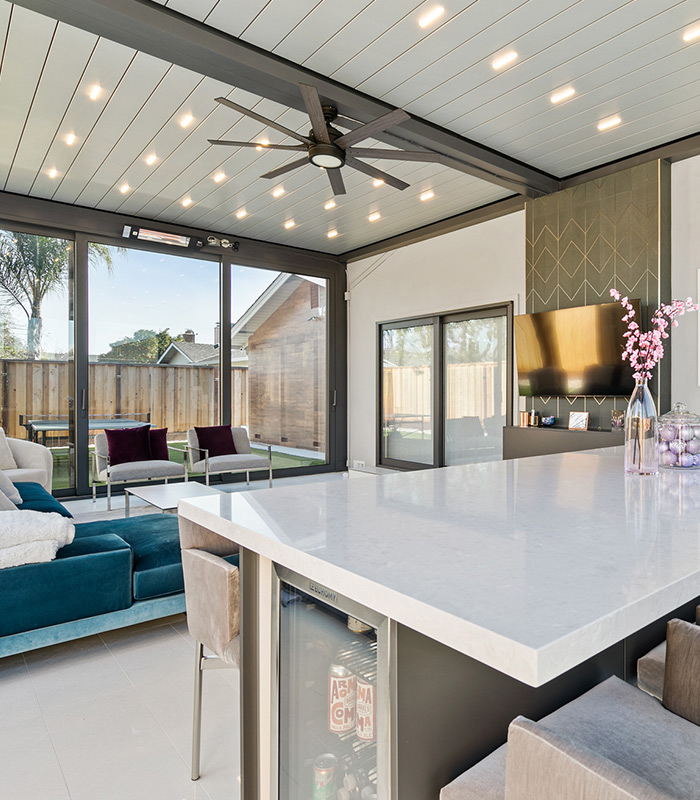
ADUs can be of various shapes and sizes. While their structural forms vary, their differentiating characteristics make ADUs a much-needed housing options in California. Depending on the intended purpose, you will have to choose the right type of ADU that best suits you.
There are many names of an Accessory Dwelling Units (ADUs) such as: granny flats, in-law units, backyard cottages, secondary units, and more. Available space, local zoning regulations, and purposes are just a few of the things you will have to keep in mind when selecting the type of ADU you want to build on your property.
There are also sometimes specific requirements that applicable to an particular type of ADUs. Done Right Home Remodeling make sure that your new ADU works with your home’s existing style, structure, and layout. Discover the different options that you can have for an ADU.

This is the traditional form of ADU or the backyard cottage that you have known all along. This is the first variation of the granny flat and for this construction; you will need to have adequate backyard space. Example:backyard cottages, granny flats, or DADUs
The regulation states that this unit must be 6 feet away from the main building. Alongside it must also be in the rear yard or 45 feet from the front property line.
There are also regulations in place for the interior space that you can have for this version of the ADU. It will depend upon your property size and if it is 9000 square feet then you can have an ADU interior space of 1000 square feet
However, if your property size is more than nine thousand square feet then you will be permitted to have an ADU interior of 1200 square feet. There are also guidelines on the maximum height of the detached ADU. If it is a single-storey detached ADU, it can have a maximum height of 18 feet.
This is another option if you intend to build an ADU within your property. This version of the ADU should suit homeowners who do not have adequate space in the backyard and yet want increase the living area. This is an ADU that shares a wall with the main home.
There are some specific guidelines on the interior space of the attached ADU. The interiors of this ADU must be half the area of the main building, but it should not cross the upper limit of 1200 square feet.
If the main building area is 2000 square feet then you can have an attached ADU interior of 1000 square feet. However, if the main building carpet area is 3000 square feet, then you will not be allowed to have more than 1200 square feet for your attached ADU.
These are some of the major types of ADUs that you can have but that is not all. There is scope to have a junior ADU or JADU. This is a construction, which can lie adjacent to the main building in a detached form. The maximum space, which can have for this form of a granny flat, is 500 square feet.
There are abundant options to have an ADU within your property and you must not miss out. This is a multifunctional area and can be used in many ways. You can use it as a home office or perhaps even think of generating rental income. If nothing else, the creation of more living areas should help to enhance the value of your home.
Your garage can also be converted into an ADU. This is an immensely popular option considering that you can do away with the construction hassles.
You can convert a garage to use it as a carport or into a living area, or perhaps you can have a home office.
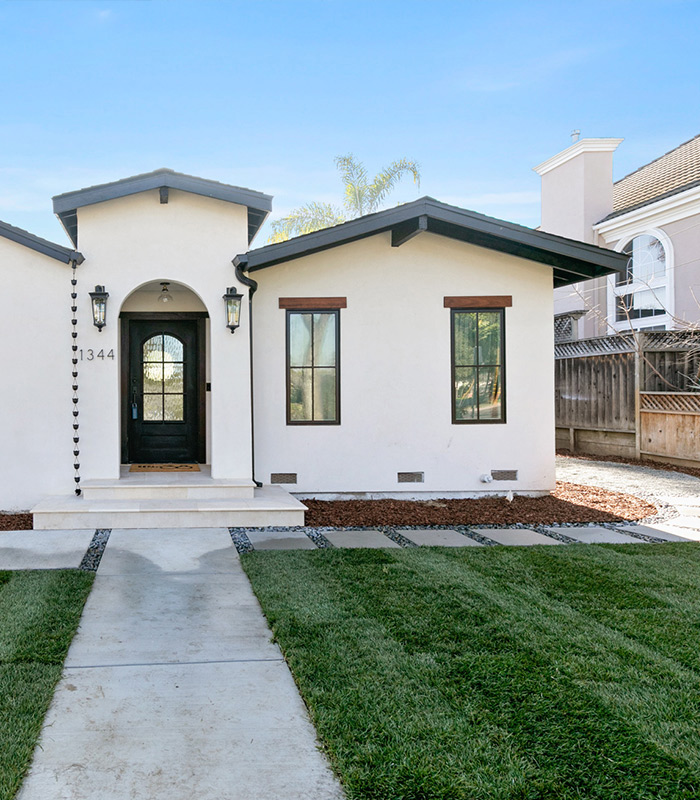
Let us now understand the varied possibilities as you plan for a garage conversion into an ADU. Here are the details in brief.
| Single detached garage | Single internal garage conversion |
| Double garage conversion | Greater scope to design improvement |
| Full garage conversion | A complete garage remodeling & conversion |
| Partial garage conversion | A part of the garage converted into a room |
| Above garage ADU | An ADU constructed above the existing garage. |
You can understand that there are immense benefits to constructing a granny flat. However, there are some ADU regulations in Bay Area
to follow as you planning to build this structure. The project manager assigned for your project will guide you on these matters. Here is a detailed insight into the regulations.
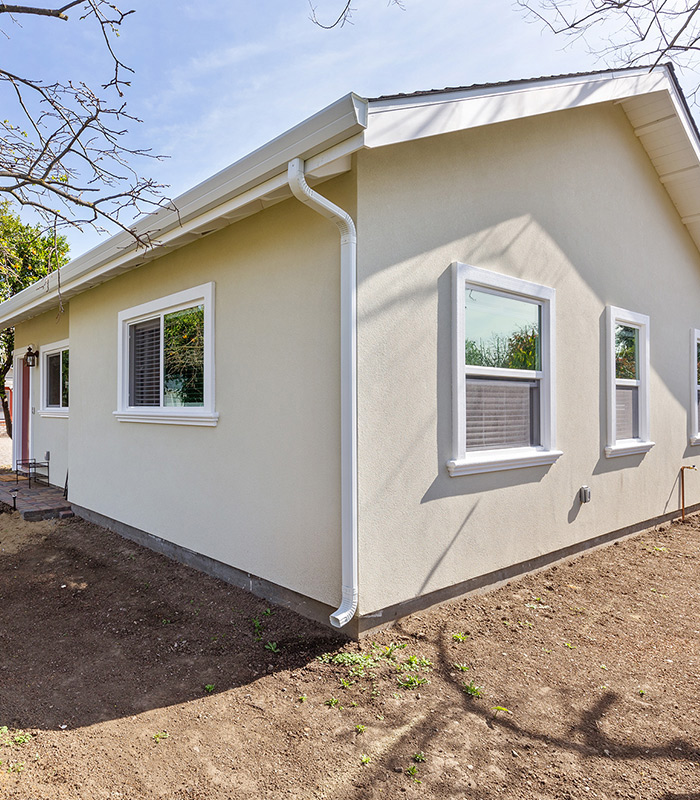
There are setback requirements and other legal aspects of an ADU and as your Bay Area ADU contractor, it is our responsibility to update you on these matters. There is no setback requirement for an attached ADU, but in the case of a detached granny flat, there are some issues that you need to watch out for. Here are the details in brief.
If your property is slightly bigger and perhaps half an acre the minimum setback back requirement increases. If your property is that big and along a water course corridor then the minimum setback is 100 feet. Is your property on the corner of the street? Then one must at least have 10 feet set back on the street side.
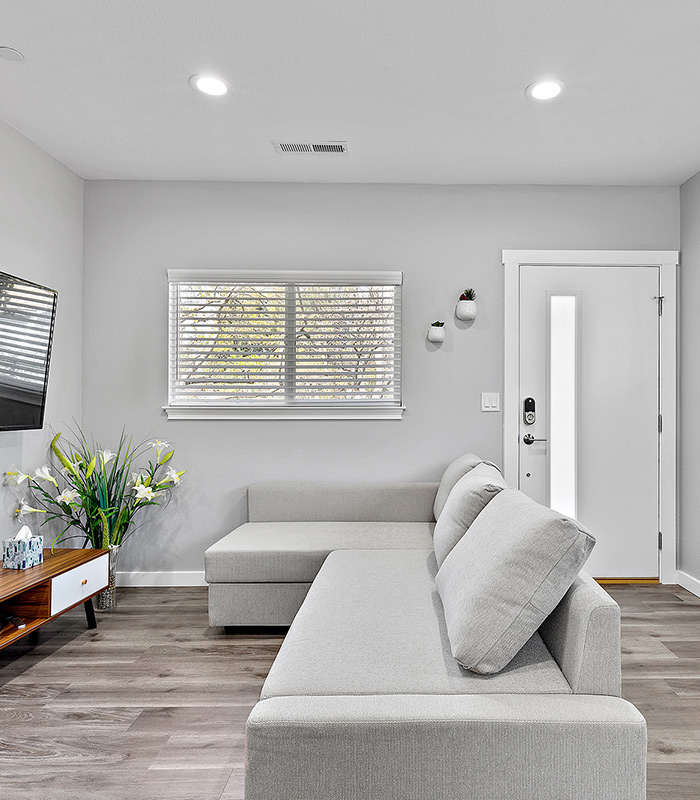
After the construction work, this will be another living area and it is important to understand everything that you can have for the ADU interior.
Let us start with the bedroom and for a granny flat, you can have at the most two bedrooms. The area for the bedroom should not exceed 400 square feet in size.
The granny flat will surely have a kitchen and this should have a permanent cooking facility. Here is a guide on what the kitchen area of the granny flat must have.
The granny flat must also have a bathroom because that is an essential part of basic living. The bath must have basics such as sink & toilet and shower facilities. Do you need some additional storage space inside the ADU? You could have it and the guidelines state that it should not exceed 60 square feet.
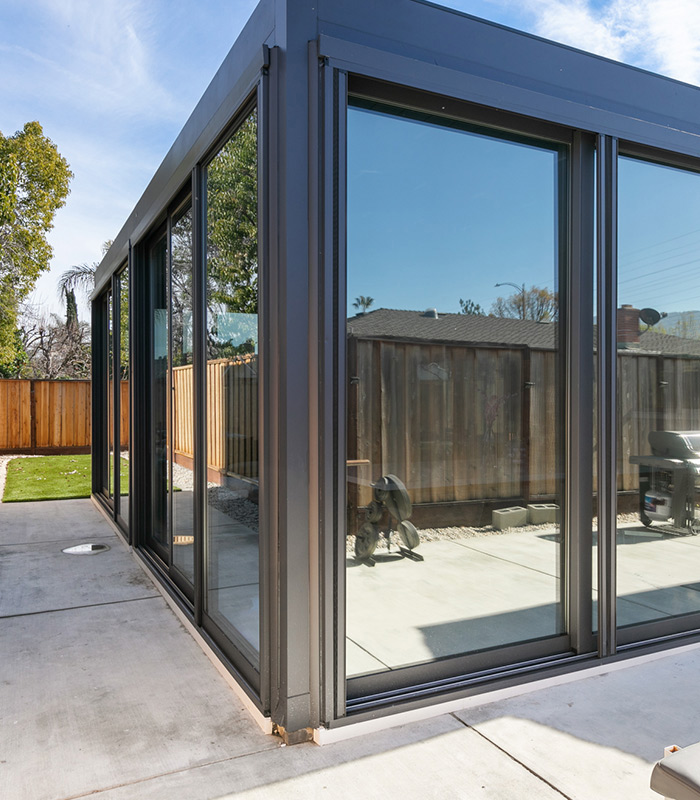
The creation of a granny flat will mean that there are now two residential units inside your property. Do I need more parking within the property? This could be your automatic question and you must understand that there are some exemptions from having to create additional parking areas. Read through the details to know about ADU Parking Requirements and Exemptions – City of Bay Area
These are some instances when you will be exempted from having additional parking space for the ADU. However, in case your ADU needs parking then the laws state that it must have a minimum driveway length of 18 feet. The surface of the driveway should also be free of mud & dust.
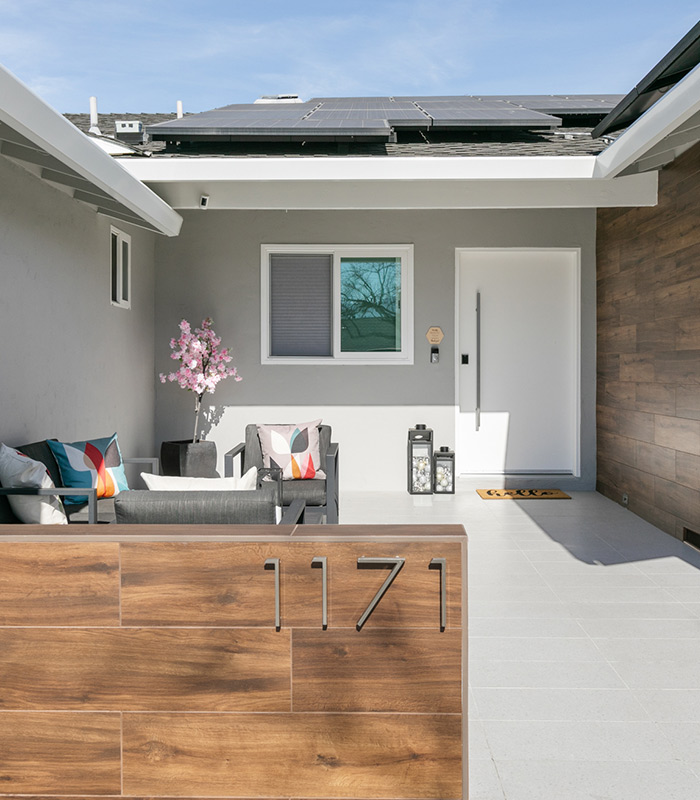
It is vital to prepare a design for the granny flat that should comply with the ADU Fire Requirement in Bay Area. Hence, some basic checks are necessary in this regard, and these are the details.
One of the priorities will be to ascertain whether your property is allowed to construct an ADU or not. There will be a need to check out with the Bay Area permit office to ascertain whether the property falls under the ADU zone or not. This is a preliminary step of the construction process and here are some vital checks to conduct.
The ADU team assigned for your project will guide you on these matters and you need not have to worry.

You would want to seek an easy and quick ADU Plan Review & permit Processx in Bay Area and for that, there is a need to prepare a full proof plan. There is a need to submit it to the Building & Safety Department and here is the fine print.
The first document you need to submit is a plot plan and in this segment, there is a need to specify the precise location of your property. This plan must include the details such as the street name, street number, and specifics about your property. It must include details such as yard setbacks & parking space layout.
The floor plan is another key document to submit and there will be a need to show the work details here. This plan must include the proposed rooms and the precise door and window measurements. There will be a need to showcase how everything will be placed.
There will also be a need to show the building elevations. There will be a need to mention the exterior elevation and mention all the outward projections and cross sections.
The foundation plan is another important document that you need to submit. It is a detailed ADU plan that should show the size and width of the foundation. This plan should include details such as the thickness of the slab and the grade of the materials. Are you planning to raise a construction? There will be a need to mention the direction of the floor joists.
There is also a need to show the roof rafters in the drawing of the ADU plan.
It is also essential to mention the energy calculations and Certificate of Compliance (CF1R) in the plan.
It is a detailed insight into the permits that you will need to submit and it could look a bit hectic, but you need not have to worry. This will be done by the project manager and other than signing the assessment, you will perhaps have nothing much to do.
There will be a need to submit everything to the Building & Safety Dept and it could either be online or over the counter. If you are submitting it online, it should be in PDF format. On submission of the application, it will be reviewed to see whether it is compliant with the county zoning and building codes.
If there are issues, the project manager will coordinate with them and do the rectification. After the rectifications have been done, your project gets a stamp of approval.
For all your residential projects. We deliver excellence that goes beyond your expectations.
The work related to the design preparation can start within 2 days. However, the construction work should only start after the permits have been obtained for your project.
It will depend upon the scale and size of the project. Normally, it could take anywhere in the range of nine months to a year. This count should happen right from the first day you meet the architect to the final delivery. The garage conversion on the contrary should be faster to complete since the foundation already exists.
There could be multiple reasons why you would want to build an ADU. The list is a long one and here are the details.
The ADU stands fixed to the ground on the contrary a tiny home has wheels. You must realize that a tiny home is not roadworthy.
No, there will be no reassessment of your property tax, but there could be a supplemental line of increase with the ADU, which should be reflected on your tax bill.
Please fill up the form and one of our team members will give you a
call as early as possible.
